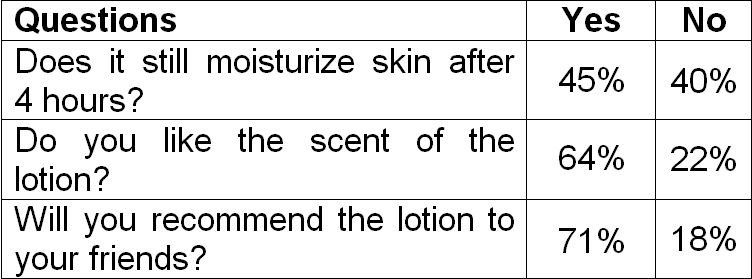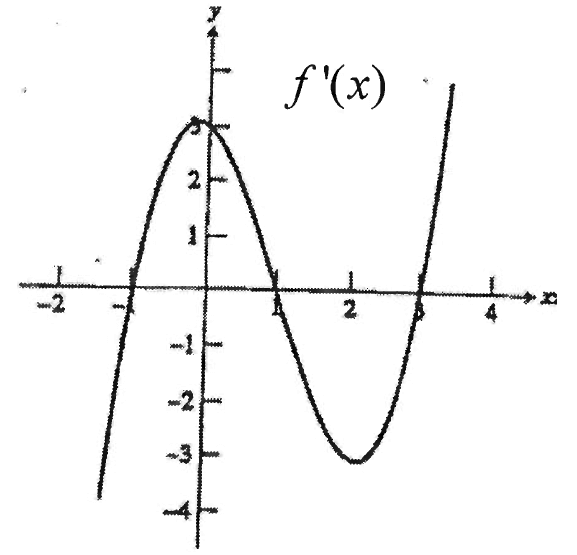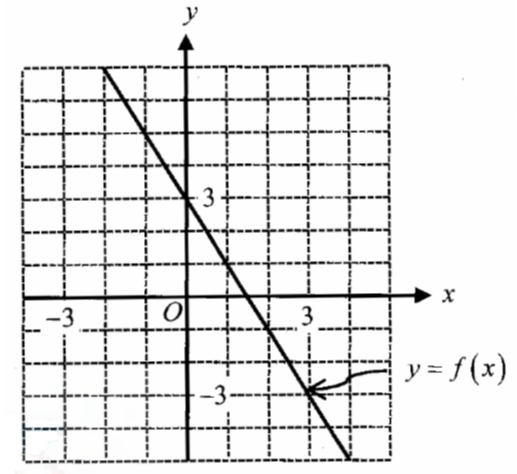FIND AREA OF THE SHADED REGION OF A CIRCLE
Example 1 :
The inner part of an athletics track is lawn. Find the area of the lawn.
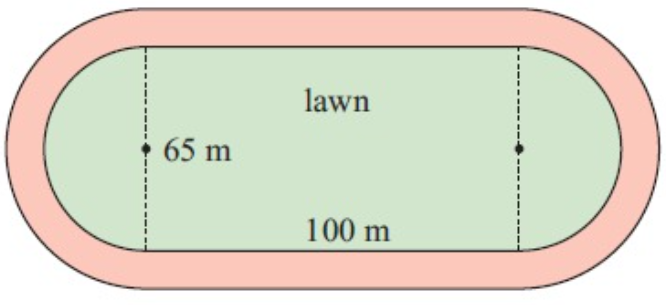
Solution :
Area of lawn
= Area of rectangle + 2(Area of semicircle)
Length = 100 m, width = 65 m
radius = 65/2 ==> 32.5 m
Area of rectangular lawn = Length × width + 2(∏r2/2)
= (100 × 65) + [22/7 × 32.5 × 32.5]
= 6500 + 3319.64
= 9819.6 m2
Area of shaded region = 9820 m2
So, area of lawn is 9820 m2.
Example 2 :
A door has the dimensions shown.
(a) How high is the door at its highest point ?
(b) What is the area of the door in square meters ?
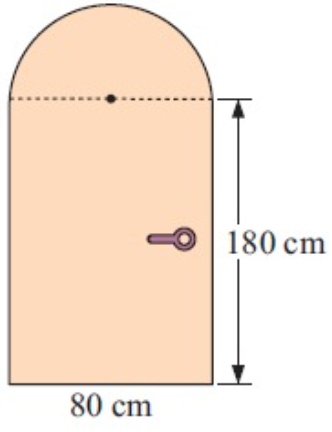
Solution :
(a) From the picture, the door consist of rectangle and a semicircle.
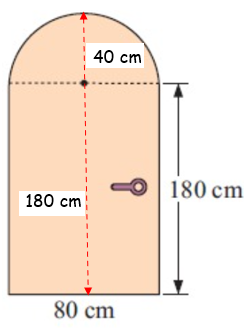
= (180 + 40) cm
= 220 cm
220 cm high is the door at its highest point.
(b)
Area of shaded
region
= Area of rectangular door + Area of semicircle
Length
= 180 cm ==> 1.8 m
Width = 80 cm ==> 0.8 m
Diameter (d) = 80 cm
Radius = 40 cm ==> 0.40 m
= (1.8 × 0.8) + [(22/7 × 0.4 × 0.4)/2]
= 1.44 + 0.2514
= 1.69 m2
So, area of the door is 1.69 m2.
Example 3 :
Find the area of the shaded region.
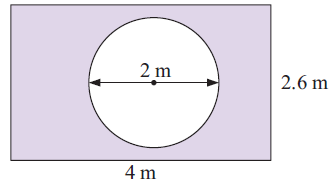
Solution :
Area of shaded region
= Area of rectangle - Area of circle
Length = 4 m, Width = 2.6 m
d = 2 m and r = 1 m
Area of shaded region = Length × width - ∏r2
= (4 × 2.6) - (22/7 × 1 × 1)
= (10.4 – 3.14) m2
Area of shaded region = 7.26 m2
So, area of the shaded region given above is 7.26 m2.
Example 4 :
A circular table top has a diameter of 1.6 m. A rectangular tablecloth 2 m by 2 m is placed over the table top. What area of the tablecloth overlaps the table ?
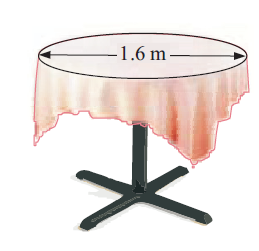
Solution :
Overlapping area
= Area of rectangular tablecloth - Area of circular table top
Length = 2 m, width = 2 m
Diameter d = 1.6 m and radius = 0.8 m
Overlapping area = Length × width - ∏r2
= (2 x 2) - (22/7 × 0.8 × 0.8)
= (4 - 2.0114) m2
Overlapping area = 1.98 m2
So, Area of the tablecloth is 1.98 m2
Example 5 :
Consider a square within a circle.
(a) Find the area of:
i) the circle
ii) the shaded triangle
iii) the square.
(b) What percentage of the circle is occupied by the square ?
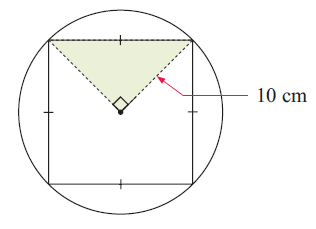
Solution :
(i) From the picture given radius of the circle is 10 cm.
Area of circle = ∏r2
= (22/7 × 100) cm2
Area of circle = 314 cm2
(ii) the shaded triangle
By drawing a diagonal for he square, it divides the square into two right triangles.
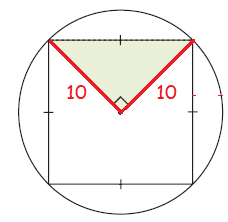
Area of triangle = 1/2 ⋅ b ⋅ h
= 1/2 ⋅ 10 ⋅ 10
= 50 cm2
(iii) the square
length of diagonal = 20 cm
Area of square = 1/2 . d2
= 1/2 × 20 × 20
Area of square = 200 cm2
= 200 cm2
(b) Percentage = (Area of square/Area of circle) × 100
= (200/314) × 100
= 0.6369 × 100
= 63.69%
So, 63.7% of circle is occupied by the square.
Example 6 :
(a) Find the shaded area.
(b) Find the sum of the perimeters of the two circles.
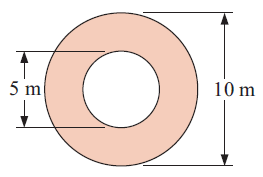
Solution :
(a) Area of shaded
region
= Area of large circle – Area of small circle
Let "R" and "r" be the radius of large and small circles.
R = 10/2 ==> 5 m
r = 5/2
Area of shaded region = Area of large circle - Area of small circle
= ∏R2 - ∏r2
= ∏(25-(5/2)2)
= ∏(25-(25/4))
= (22/7)(75/4)
Area of shaded region = 58.92 m2
b) Sum of the perimeters of the two circles
= Perimeter of large circle + Perimeter of small circle
= 2∏R+ 2∏r
= 2∏(R+r)
= 2(22/7)(5+5/2)
= (22/7)(15)
= 47.14 m
The sum of perimeter of circles is 47.14 m.
Example 7 :
A circular rug is laid on a tiled floor. Find
a) the area of the rug
b) the visible area of the tiled floor.
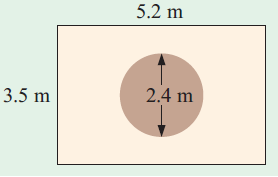
Solution :
Radius r = 2.4/2 ==> 1.2 m
Area of rug = ∏r2
= ∏ × 1.2 × 1.2
= (22/7 × 1.44) m2
= 4.525 m2
Area of rug = 4.52 m2
b) the visible area of the tiled floor
= Area of tiled floor – Area of rug
Length = 5.2 m, Width = 3.5 m
= (5.2
× 3.5) - 4.52
= 18.2-4.52
= 13.68 m2
So, the visible area of the tiled floor is 13.68 m2
Example 8 :
A gardener is making a path using 8 cylindrical concrete pavers. Each paver has a radius of 20 cm and is 5 cm thick.
(a) Find the total area of the tops of the pavers.
(b) Find the total volume of the pavers
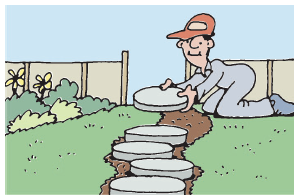
Solution :
Radius of pavers (r) = 20 cm
r = (20/100) m
r = 0.2 m
Area of top 8 pavers = 8(∏r2)
= 8(22/7 × 0.2 × 0.2) m2
= 8(0.125) m2
= 1.005 m2
= 1.01 m2
Total area of the tops of the pavers is 1.01 m2.
b) r = 0.2 m
height (h) = 5 cm ==> 0.05 m
Volume of the pavers = 8(∏r2h)
= 8(22/7 × 0.2 × 0.2 × 0.05)
= 8(0.044/7)
= 8(0.006285) m3
= 0.0503 m3
Volume of the pavers = 0.0503 m3
Kindly mail your feedback to v4formath@gmail.com
We always appreciate your feedback.
©All rights reserved. onlinemath4all.com
Recent Articles
-
Digital SAT Math Problems and Solutions (Part - 101)
Jan 26, 25 07:59 PM
Digital SAT Math Problems and Solutions (Part - 101) -
AP Calculus AB Problems with Solutions (Part - 7)
Jan 26, 25 06:56 AM
AP Calculus AB Problems with Solutions (Part - 7) -
Digital SAT Math Problems and Solutions (Part - 103)
Jan 25, 25 01:00 AM
Digital SAT Math Problems and Solutions (Part - 103)
